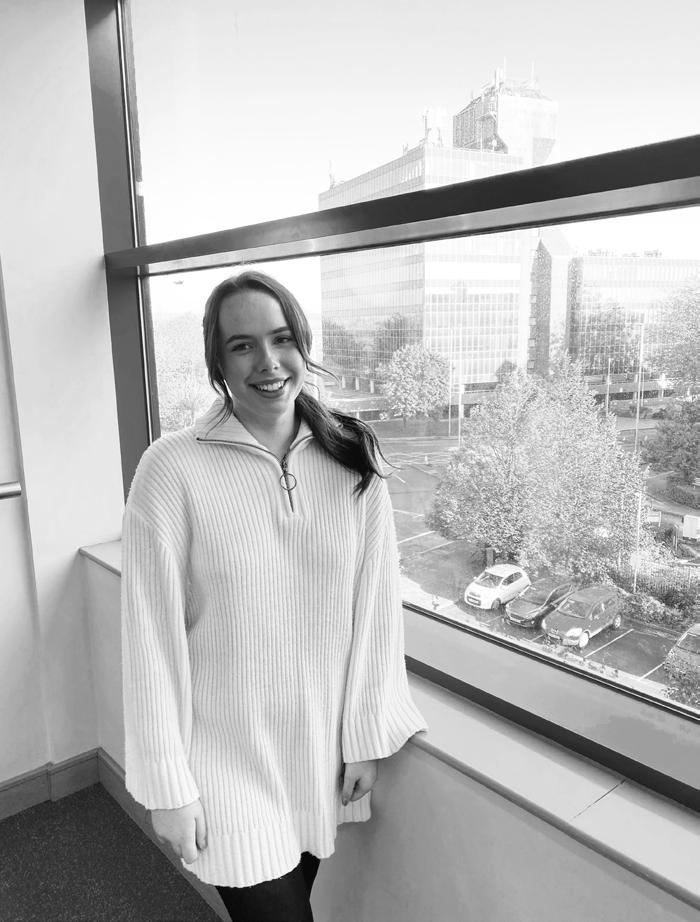
3 minute read
Children and young people
Support in many forms
This trauma can have physical, social, emotional, and behavioural impacts, often with these impacts overlapping. Physically, they can experience bed-wetting, develop eczema, struggle with sleep.
Advertisement
Socially and emotionally, they can develop entrenched feelings of fear and anxiety, they can develop a sense of responsibility for protecting others, struggle with self-worth and find it difficult to make or keep friends. Behaviourally, they will often either internalise or externalise the feelings that are having. Externalised behaviour can present as aggressive, bursts of anger, internalised feelings can present as being withdrawn or even detached and uninterested.
Children and young people experiencing any of these feelings or behaviours need support so they can recover and learn how to cope with their experiences. Support from our service comes in many forms. It could be programmes and groups, school workshops and support interventions, one-to-one sessions from a specialist children and young person (CYP) outreach worker or joining activities with a funded playworker. We support the children to gain improved understanding around safety, mental and physical health, friendships and relationships, confidence and self-esteem.
School projects
Throughout the year we have continued to support children and young people both in schools and within the community. Pupils aged eight to eleven are introduced to the concepts of healthy relationships, safe people and ways of managing emotions, through a range of interactive and discussion-led activities.
Our Safe Little Bear groups continue to be in demand in schools across the region, with a group of four to seven year old children introduced to simple concepts of healthy behaviours and safety through five weekly sessions.
Thousands of teenagers
We have delivered one-toone sessions tailored to meet individual needs and our ongoing support continues to make a marked difference in young people’s lives. Our support sessions have been delivered to young people who have witnessed domestic abuse in their homes and through our APA work (adolescent to parent abuse) we have also been able to support young people who are displaying abusive behaviours themselves. We continue to receive referrals for support from schools, social workers and many other family services.
In addition to our one-to-one support sessions, we continue to deliver group work helping both to educate and to support young people. A new project we have successfully delivered has focussed on the prevention of inappropriate sexualised behaviour. The workshop has been delivered to thousands of teenagers all over Hampshire and our feedback forms have demonstrated just how much pupils have taken away from the sessions.
Everyday scenario
Our skilled workers have delivered interactive sessions in hundreds of mainstream and specialist schools across the county. The interactive sessions presented pupils with a range of different behaviours and they were encouraged to share their opinions as to which behaviours may be appropriate.
Specialist children and young people's workers were able to create an environment where pupils could challenge each other and have complex discussions about healthy relationship behaviour. Case studies were presented and encouraged pupils to apply the ideas to an everyday scenario.
Refuge
Families come to refuges because they have no other option. It is not safe for them to remain in their homes. As a refuge is only a temporary place to stay, it is crucial that children and young people are supported through this unsettling and potentially upsetting period of their lives, until they can move into a permanent home with their nonabusive parent.
Our Children and Young People refuge workers and play workers welcome women and their children into refuge and provide them with support to meet their needs. Our team works collaboratively to identify the needs of individual children, young people and their mothers so that they manage the impact of trauma and begin the healing process of their domestic abuse experience.
In each refuge we have a dedicated play room or play area which which we fill with toys, play and craft equipment. Throughout their stay in refuge, Stop Domestic Abuse staff organise and supervise children’s activities during the day and after school as needed.
Allow children to be children
A child who has experienced emotional trauma is more likely to adapt unusual communication methods and challenging behaviours. This is also likely to impact on their mental health. Applied intervention (play therapy) can minimise the long-term impact and be implemented as a means of treatment to these behaviours and feelings. Play therapy is a structured, theoretically based approach to therapy that builds on the normal communicative and learning processes of children
A variety of play sessions and activities are delivered through therapeutic play initiatives and are often themed to various events throughout the year and aim to allow children time to be what they are – children.








